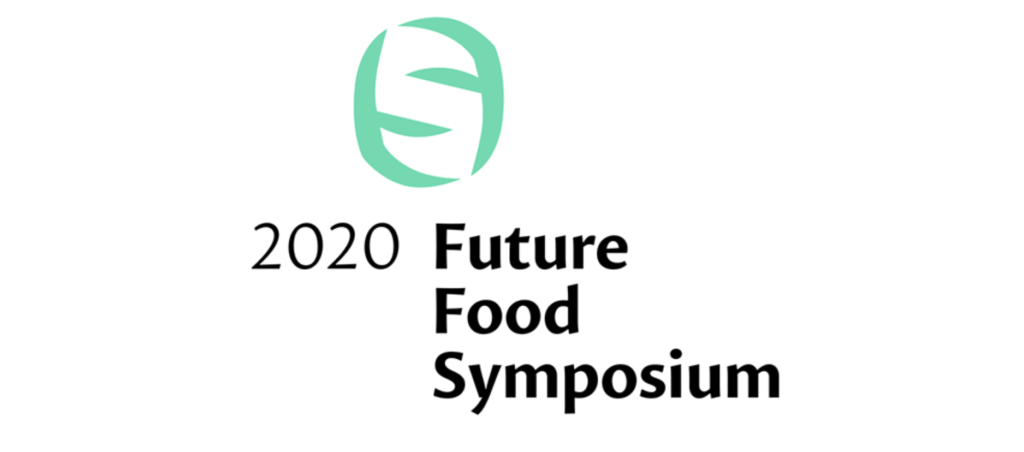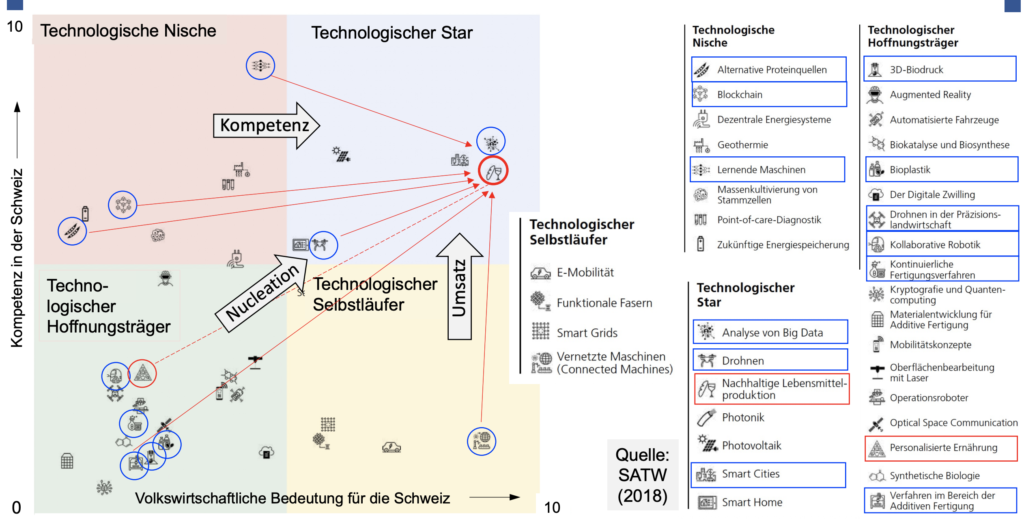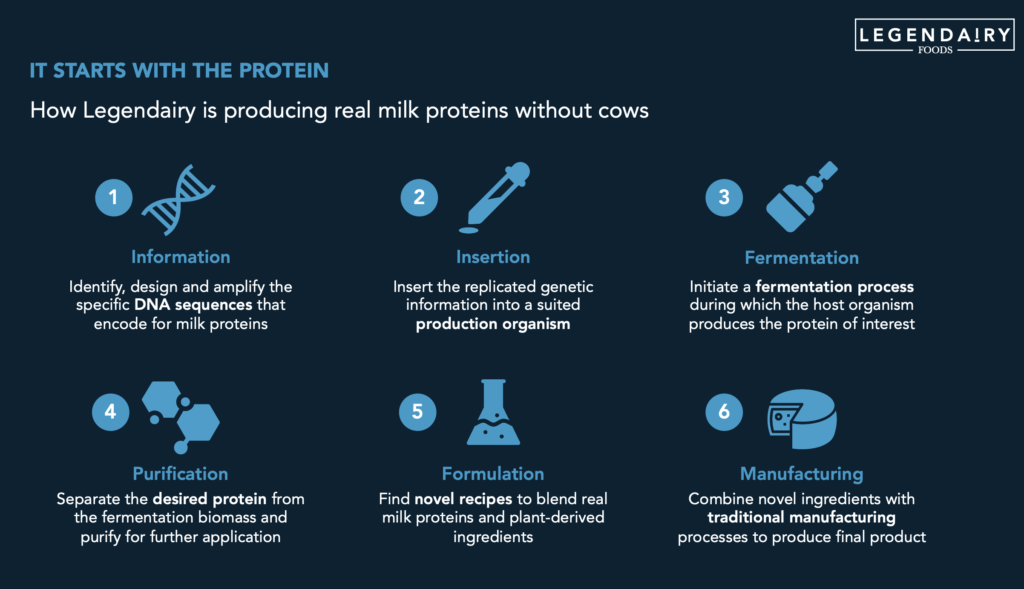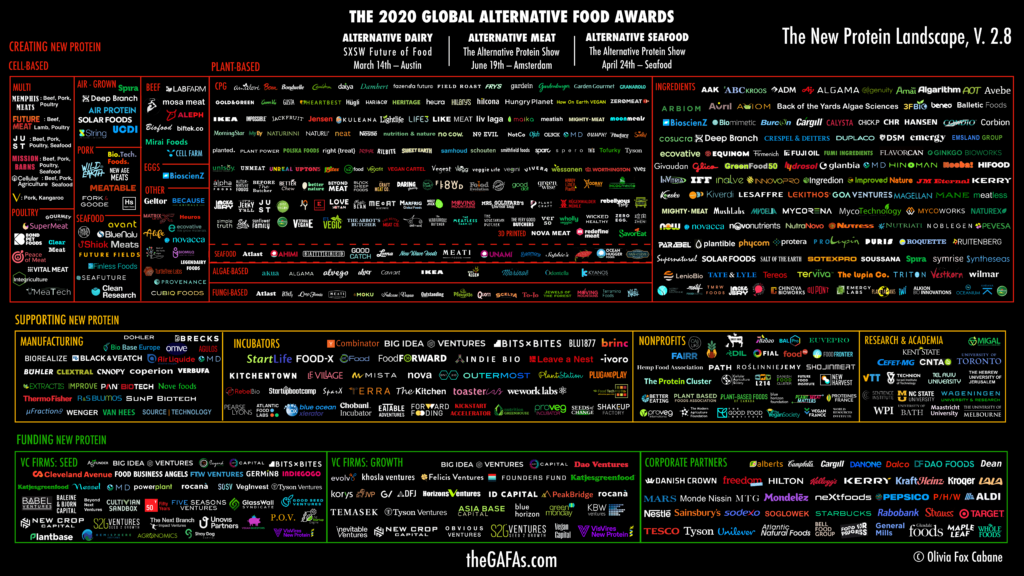The first Future Food Symposium in Switzerland took place on 7 February 2020. At the event the organizers of SGLWT, SVIAL and Swiss Food Research focused on novel foods, the production of meat analogues and sustainable packaging. During the various presentations, more than 100 participants gained insights into values, research and solutions for the future of our food.
The first Swiss Future Food Symposium was held at the Technopark in Zurich. More than 100 participants from research, business and administration responded to the call of the Swiss Society for Food Science and Technology (SGLWT), the professional association of university graduates in the agro-food sector (SVIAL) and the association Swiss Food Research to inform themselves about the future of our food production, exchange information and build networks.

After the opening by Peter Braun and Marc Lutz, Jean-Valentin de Saussure from the Swiss Youth for Climate will give a look at the future of our food industry from the perspective of the climate strikers. With clear facts and unequivocal statements, he makes it clear that the climate crisis is already on our plates. The representative of the Swiss Youth for Climate emphasizes that our food has a direct influence on climate change and that it is therefore important that we together as a society make our actions more sustainable.
One plus one is more than two
“One and one is more than two” – this motto comes from Erich Windhab of ETH. He calls for more networking in the Swiss food industry. Combining existing technologies with research results and start-up developments would help our food production to become fit for the future.

Image: Possible combinations for networking in the Swiss food industry. Source: Windhab, ETH at the Future Food Symposium 2020.
Tomas Nemecek from Agroscope also agrees that some things have to change. The researcher, who deals with life cycle assessments and the environmental impact of our food, among other things, shows how much reduction potential there is in the Swiss food industry. According to his studies, the prerequisite for this is above all a diet that includes less meat, as animal production causes around 50% of the environmental impact of the Swiss food sector. And that there are already alternatives to animal protein, Alexander Mathys (ETH) showed in his lecture on the proteins of the future. Whether legumes or microalgae, the range of alternatives to protein production is diverse and far from exhausted. We can therefore expect a lot more in the future.
All vegan? Beyond analogue & extreme
Christoph Denkel from the HAFL has investigated the question of whether “vegan” is currently a wish or reality. His statement that vegetarian and vegan nutrition is increasingly becoming a lifestyle suggests that the market for meat analogs will continue to grow in the future. Suppliers of vegan and vegetarian products are trying to pick up indecisive consumers by offering products comparable to meat – Vegi burgers made of soya or minced meat from Quorn are no longer a rarity in the supermarket shelves. But Denkel emphasizes that we should not just create substitute products that (want to) taste like meat and think in the rigid categories of vegan, vegetarian or meat-based diets. We need to think further, i.e. “beyond analogue” and “beyond extreme”. The focus of new food developments could therefore be much more on the taste experience, juiciness or mouth feeling in order to appeal to new target groups.
Legendary and cellulary
Raffael Wohlgensinger from the start-up Legendairy Foods started the afternoon with the provocative title “Is the cow in danger of disruption?” The founders of the young Berlin-based start-up are experimenting with a vegan alternative for cheese and seem to be at the cutting edge of developments. So far they have no products on the market, but the company wants to grow further and the investors apparently see potential in the cheese copy from the German capital.
Flavio Rump from Food Visionaries then explained to the participants how much potential there is in new technologies for the production of non-animal meat analogs using cellular and non-cellular agriculture. According to Rump, the Swiss food industry, in collaboration with the industry’s early adopters, could play an important role in the development of novel foods. So it remains exciting.

Image: Production process of Legendairy Foods. Source: Raffael Wohlgensinger, Legendairy Foods at the Future Food Symposium 2020.

Image: Market for alternative foods is growing enormously. Source: newprotein.org/maps
The first Swiss Future Food Symposium was completed with a presentation by Hannelore Daniel, nutritional psychologist at the TU Munich. She got to the bottom of the question of whether we are too careless in dealing with new types of food. With a lot of charm and a portion of cynicism she approached this question, which could be answered in one word or even in a whole book. In her easy-going way, she points out the EU rules for food to the participants and the absurdity of how these rules are applied to novel foods compared to traditional ones. The handling of novel products is therefore not careless, considering the complex approval procedures for products. Hannelore Daniel believes that what is more alarming is our increasing disassociation from natural foods and the ultra-ultra-processed ones.
Well, and now? Conclusion of the Future Food Symposium
The results of research and studies in the food industry clearly show that animal production and above all meat consumption offer the greatest potential for reducing the environmental impact of the food industry. Many start-ups and also global players in the food industry have already recognized this trend and are working on new technologies for the production of novel foods that could land on our plates in the future. Swiss Youth for Climate reflects another trend: Our society is changing and sustainability is becoming an increasingly important criteria for many consumers when shopping – not only for food. Vegan or vegetarian diets are changing from marginal to accepted lifestyles, which will further increase the demand for such products. So there is a lot happening in our nutritional habits and in global food production. The effects of these trends will be seen in the future – which we can to a large extent shape ourselves!

Image: We can shape the future of our food industry – now. Source: Raffael Wohlgensinger, Legendairy Foods at the Future Food Symposium 2020.


